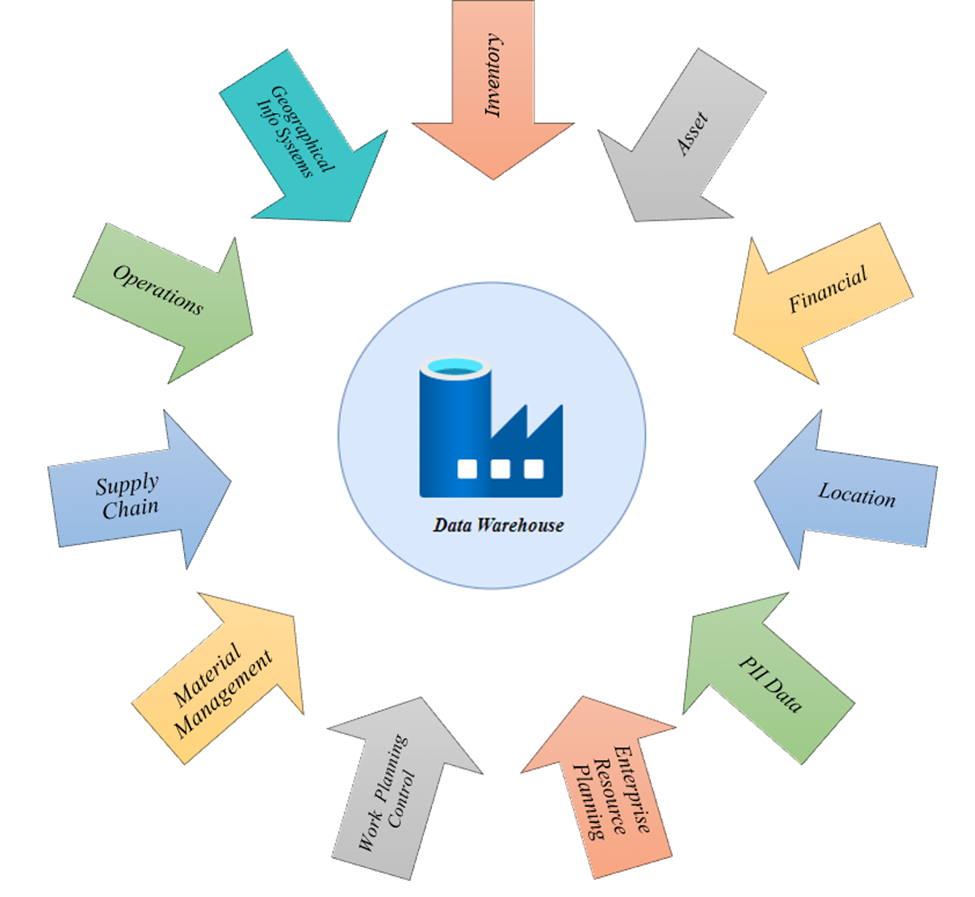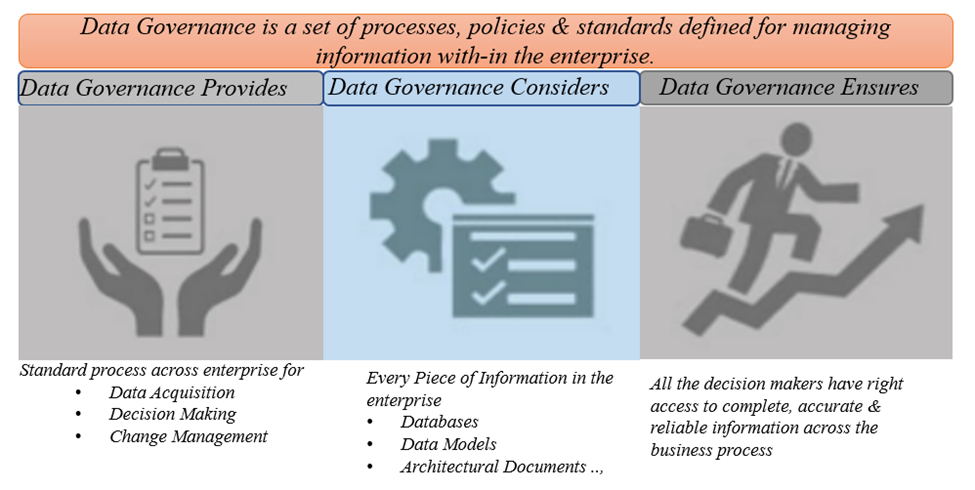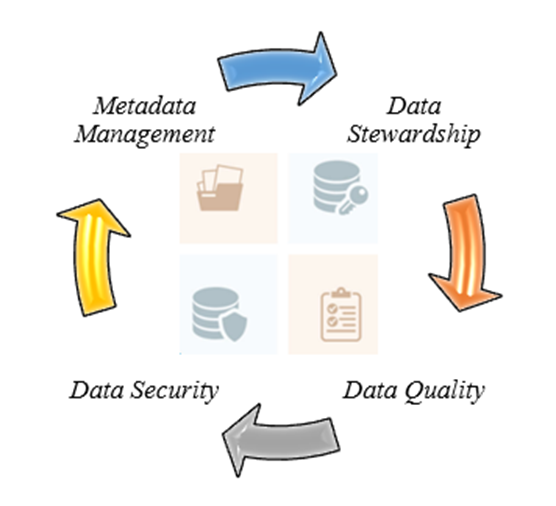The Role of Data Governance in Data Strategy: Part 1
Data volumes are more than tripping every year in the industry, making data quality a big concern in many organizations.
Join the DZone community and get the full member experience.
Join For FreeData volumes are more than tripping every year in the industry, which is making data quality a big concern in many organizations. The information is in high demand but organizing it in a way to make it consumable is a challenge many are trying to solve.
Every organization has its own set of database systems and platforms for storing various types of data in the data warehouse. The stored or ingested data is maintained, but most of them are generally behind the curve in creating organization-wide solutions to manage the data.
Different Modules of Data in Any Given Industry

This can result in duplication of effort in data maintenance, unnecessary costs for the storage of data, infrastructure, and resources, as well as under-utilization of the data because it isn't formatted to solve organizational problems or provide intelligent insight for decision-making. While it's often unintentional, the below pointers are one of the key causes of how organizations end up with "messy data" [data that duplicates or is outdated, insecure, incomplete, inaccurate, or inconsistent] and the risks associated with it.
Some of the Calculated or Identified Risks
- Unidentified or unknown data owners tie data cleanup to the lack of ownership.
- Inconsistency of business processes at the enterprise level due to redundant data, a lack of quality data, and data control access.
- When personally identifiable information (PII) is exposed, it leads to data insecurity.
- Potential risks for a data breach.
- More time for data reconciliation.
- I am using defective data in strategic planning.
Organizations that are victims of the segmented approach to data end up with more than the risks described above; they also have the cumbersome process of finding the right data in the right form for reporting and decision-making. However, at the enterprise level, data management is a big concern.
How does an organization take control and make use of meaningful data? Here it is: introduce a governance policy.

The data requires processes and policies in place to manage the data created for the projects in the same way that we approach and follow the standards and policies for a project in the organization. On the other hand, the data comes from various sources, departments, etc. When viewed holistically and across the organization, this data will communicate the requirements and ensure accessibility.
Though data governance must be implemented across the entire organization, the best place to start is with the implementation of the data warehouse, master data management, and metadata management initiatives. The learnings and findings from these implementations can then be translated on a larger scale throughout the organization.
Core Components and Benefits of Data Governance
- Data Stewardship
- Data Quality
- Data Security/Privacy
- Metadata Management

Each of these components is critical to the overall program.
Key Benefits of Having Data Governance
- Data Governance can help make sure that the information in an organization is accurate, up-to-date, and used properly. This can help improve how the organization functions and makes decisions.
- Data governance ensures that data is accurate, complete, and consistent, which makes it more useful and reliable.
- A data governance system helps keep your information safe and reliable by making sure it is well-documented and easy to find. It also makes sure that the information is kept secure, compliant with laws and regulations, and private.
- Data governance is a system that helps ensure that all the data within a company is consistently named and categorized while still allowing individual businesses to have some freedom to operate.
- Data governance helps to keep track of all the data related to important critical data entities so that it can be easily integrated with business goals. This makes it easier to use and connect data assets to business outcomes.
- A single source of truth for businesses is important, and this can be helped by good data governance. This means that businesses can be sure that all the data they use is accurate and consistent.
- Data governance establishes guidelines for how we protect your personal information. This helps us keep up with the laws that require us to protect your data, such as the EU General Data Protection Regulation (GDPR), the CCPA (the California Consumer Protection Act), the US HIPAA (Health Insurance Portability and Accountability Act), and industry standards like the PCI DSS (Payment Card Industry Data Security Standards).
- Data Governance helps ensure that the data we use is lawful, protected, and secure.
Summary
When creating a data governance program, there are a few things to take into consideration. First, you'll need to decide what needs to be protected and what needs to be accessible. Second, you'll need to figure out how to keep track of who has access to what information. And finally, you'll need to make sure that all the data is stored in a secure location.

- Budget: Operational capability, Capital
- Stewardship: Official Accountability
- People: Data Governance Structure
- Process: Escalation, Priority, Address issues, Opportunity
- Technology: AI/ML, Metadata management
In the next article, we will discuss the crucial role of 'BigID' in the Data Governance sector with respect to Data Privacy and Data Security.
Opinions expressed by DZone contributors are their own.

Comments